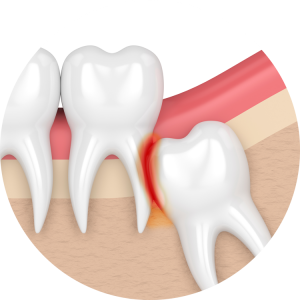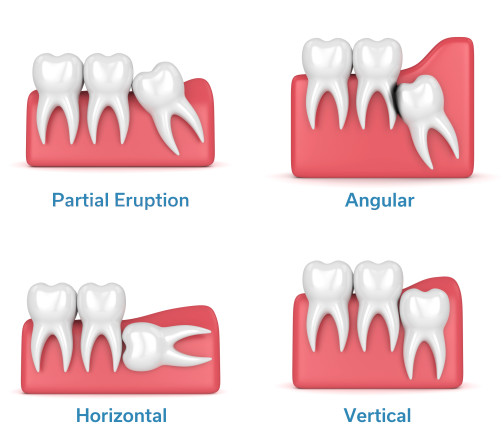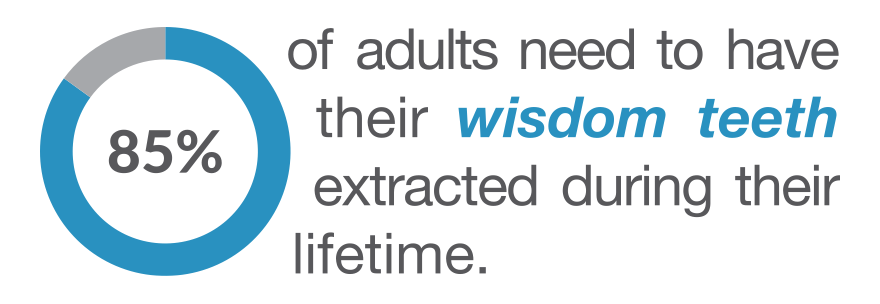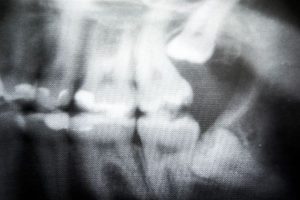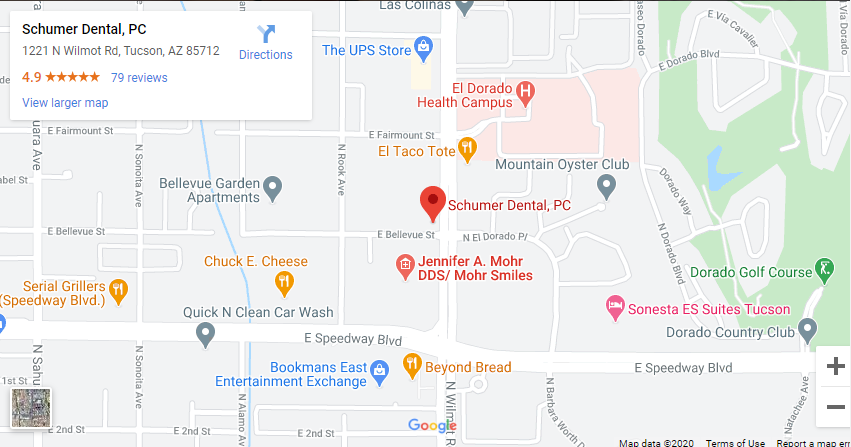Wisdom teeth can become impacted when they are trapped under the gums or bone, causing considerable pain.
When trapped, wisdom teeth can easily decay and may even damage surrounding teeth. As such, impacted wisdom teeth require extraction.
How do I know if my wisdom teeth are impacted?
Impacted Wisdom Teeth Often Cause Pain & Other Unpleasant Symptoms
- Pain
You may experience severe pain in your teeth, gums, jaws, and even ears. This can occur due to pressure or infection.
- Tenderness, Bleeding, & Swelling
Noticeably tender or swollen gums are a common symptom of impacted wisdom teeth. You may also experience some bleeding due to gum irritation.
- Bad Breath or an Unpleasant Taste
An infection caused by an impacted wisdom tooth can create a foul smell or taste in your mouth.
Are there different types of wisdom tooth impaction?
A Wisdom Tooth Can Become Impacted in Several Ways
Each type of impaction can have severe implications on the health and appearance of your smile.
Am I at risk of developing an impacted wisdom tooth?
Young Adults & Teens Face the Greatest Risk
In most cases, wisdom teeth erupt between the ages of 17 and 25. Patients in this age group should pay special attention to any changes in their bite and be aware of symptoms that may indicate impaction.
What causes wisdom teeth to become impacted?
Certain Factors Prevent Wisdom Teeth from Erupting
- Lack of Space
Since wisdom teeth are the last to grow in, many patients may not have enough room for wisdom teeth to grow in properly.
- Abnormal Development
The eruption of teeth can be unpredictable. Some grow in at awkward angles. This can lead to them becoming trapped under the jaw or gums.
Are impacted wisdom teeth commonly removed?
Many Patients Need to Have Their Wisdom Teeth Removed
*According to the American Association of Oral and Maxillofacial Surgeons
Are impacted wisdom teeth easy to diagnose?
Your Doctor Can Examine Your Bite to Identify an Impacted Wisdom Tooth
Most of the time, an impacted wisdom tooth is easy to diagnose during a routine dental exam. During the exam, your doctor can perform a visual evaluation of your bite and review digital x-rays to determine where and how the tooth has become impacted. For more complex impaction, the doctor can also use 3-D imaging technology for a clear view of all the tissues involved.
What should I do if I think I have an impacted wisdom tooth?
Contact Your Doctor Immediately
Left untreated, impacted wisdom teeth can cause serious oral health issues and even shift your teeth out of place. Schedule a consultation with your doctor at the first sign of trouble so they can perform a swift extraction to remove the tooth and protect your smile.

